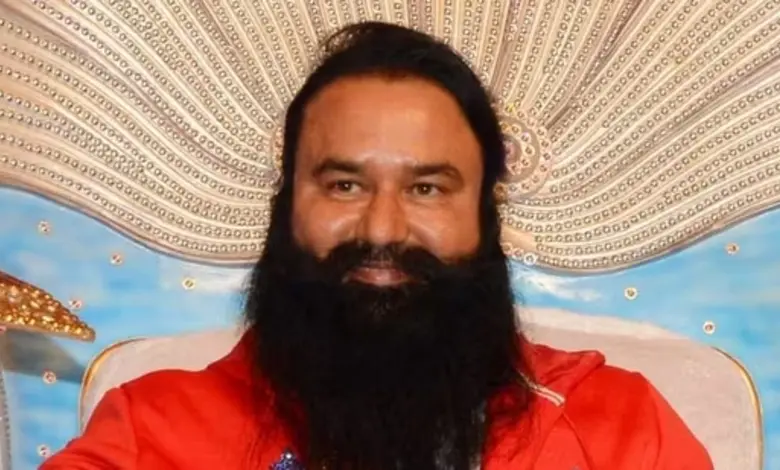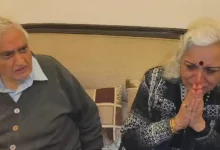Dera Sacha Sauda Leader Released on 40-Day Parole Amid Controversy

On Tuesday morning, Gurmeet Ram Rahim Singh, the leader of the Dera Sacha Sauda sect, walked out of Sunaria jail in Rohtak, Haryana, after being granted a 40-day parole. The controversial figure, convicted in rape and murder cases, headed to his organization’s headquarters in Sirsa in a convoy, marking his 14th temporary release since 2020. According to sources, Singh has spent a total of 326 days outside prison during this period, with his latest release being a 21-day furlough in April this year.
Singh is serving a 20-year sentence for raping two of his disciples, a conviction handed down by a special CBI court in Panchkula in August 2017. Additionally, he was convicted in 2019 for the murder of a journalist and in 2021 for conspiring to kill Ranjit Singh, a former manager of the sect. However, in May 2024, the Punjab and Haryana High Court acquitted Singh and four others in the Ranjit Singh murder case, citing flawed investigations. The Central Bureau of Investigation (CBI) has since appealed this acquittal to the Supreme Court.
The timing of Singh’s paroles has raised eyebrows, as they frequently align with elections in states like Haryana, Punjab, Delhi, and Rajasthan, where the Dera Sacha Sauda commands a significant following. His previous releases include a 30-day parole in January 2025, ahead of the Delhi Assembly elections, and a 20-day parole in October 2024, just before the Haryana Assembly polls. Critics, including Anshul Chhatrapati, son of the murdered journalist, argue that these releases may influence voters, given the sect’s large follower base in districts such as Sirsa, Fatehabad, Kurukshetra, Kaithal, and Hisar.
The Shiromani Gurdwara Parbandhak Committee (SGPC) has also voiced concerns, with its president, Harjinder Singh Dhami, criticizing the Haryana government for what he calls “double standards.” Dhami pointed out that while Singh receives repeated paroles, many Sikh prisoners remain incarcerated despite completing their sentences. The SGPC argues that such decisions reflect political motives and risk alienating the Sikh community.
Singh’s advocate, Jitender Khurana, defended the parole, stating it complies with the Haryana Good Conduct Prisoners (Temporary Release) Act, which allows up to 70 days of parole and 21 days of furlough annually for eligible convicts. During his parole, Singh is expected to stay at the Sirsa headquarters, a significant move as it is his third visit there since his 2017 conviction.




